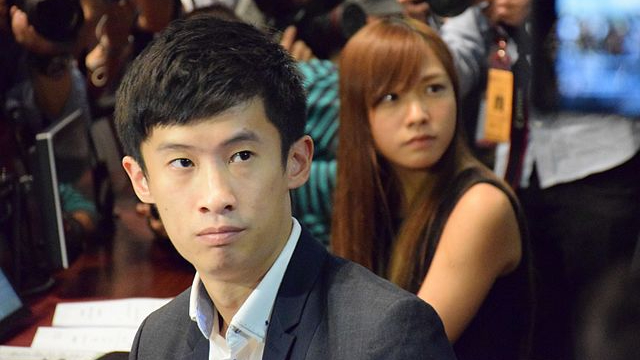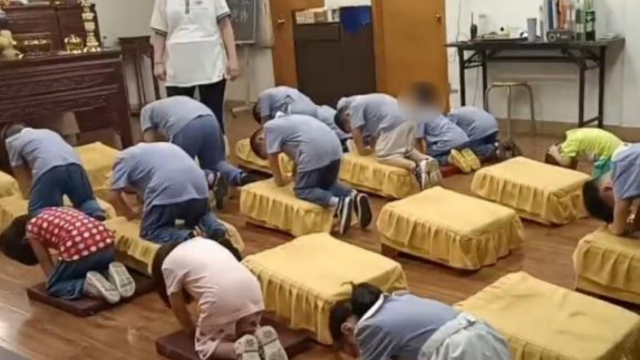
For Hong Kong activists, the past year has been one of despair and dread. Facing possible persecution under the new National Security Law, many have been forced to choose between their political causes and their homes. Former legislator Baggio Leung is one of them. A pro-democracy activist who was elected to office in 2016, his political views made him a target during China’s crackdown in recent years. He left Hong Kong for the United States this month, where he is seeking political asylum. VOA Mandarin Service’s Stella Hsu spoke with the former legislator about the tough decision to leave his hometown and his hope for the island.
In the middle of December, Baggio Leung left Hong Kong and traveled to the United States seeking asylum.
He cut ties with his family, fearing Beijing would harass them under a sweeping national security law imposed on the city this year. He also resigned from his position and duties at the pro-independence political party Youngspiration.
Leung joined a growing number of democracy activists and former legislators who have fled Hong Kong after the passing of the National Security Law, which made it easier to punish protesters.
“It is difficult for any Hong Kongers to accept that our home, once a free land, has become like what it is today,” he said.
Active since Umbrella Movement
Leung has been involved in the city’s pro-democracy protest since the 2014 Umbrella Movement and was once jailed for four weeks for unlawful assembly and attempted forcible entry after trying to barge into a Legislative Council meeting in 2016.
“After I got out of the jail, I noticed that I was always followed,” he said. “There were always people around my apartment.”
“I felt unsafe. I started to think about leaving Hong Kong and discussed the idea with my friends and colleagues. Most of them told me, ‘You got to go, buy a flight ticket and leave tomorrow.’ But it’s not that simple. To me, I have a responsibility.”
Short term as lawmaker
Leung won a seat in the 2016 Legislative Council elections. However, his tenure as a lawmaker was short. During the first meeting of the legislative session, Leung and other colleagues modified their oaths of office. A court later stripped them of their seats for failing to take their proper oath.
“More than 30,000 people once voted for me; they would want me to represent and voice for them. I don’t think they would want me to leave,” he said.
Nonetheless, in order to stay active in the movement and for his personal safety, he said he had little choice but to leave Hong Kong. He bought a ticket on a flight just three hours prior to departure, not sure if he would be arrested at the airport.
“I believe every Hong Konger, regardless of his political stance, has thought about whether he should leave Hong Kong,” he said.
Leung said he saw no way for him to return to Hong Kong in the short term after Beijing reined in the city’s limited freedoms.
“All we want from the anti-extradition protest in 2019 is that Hong Kongers won’t be sent to China for trials. But now, the National Security Law has turned Hong Kong into China,” he said. “The government can appoint judges to hear your case. They can tell you that the condition of your bail is you can’t leave Hong Kong without going through the proper legal channel. They have turned Hong Kong into a prison for free thinkers.”
‘Hopeless’
Leung is pessimistic about the city’s short-term future and said he had seen a wave of departures.
“Hong Kong used to be a very attractive place for talents,” he said. “Now it’s hopeless. Every month you hear some foreign firms decide to move away because of the political environment. It’s such a pity.”
Now in Washington, Leung told VOA he felt guilty for leaving other protesters behind.
“I am lucky to be here in a safe place,” he said. “I have to do all I can for Hong Kong here. Otherwise, I cannot face the brothers fighting under the white terror [vigilante attacks on pro-democracy activists] in Hong Kong now. I believe one day Hong Kongers will win Hong Kong back, and all the exiled overseas could return home.”
Source: Bitter Winter












